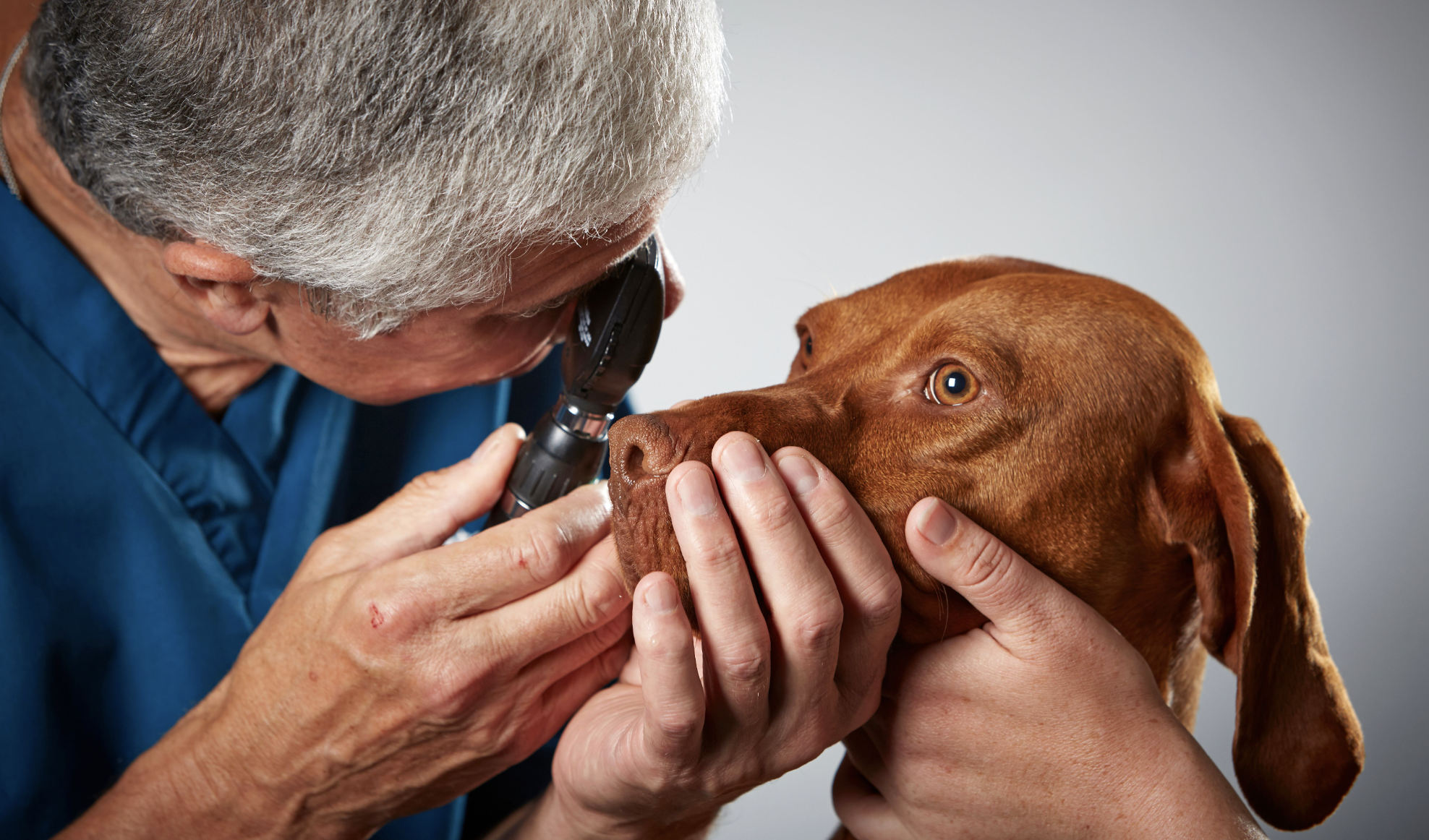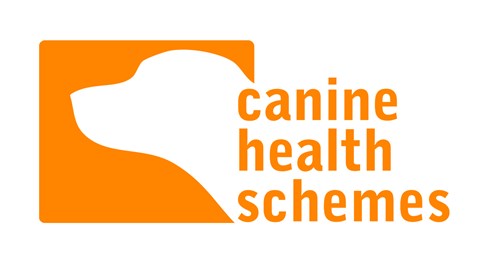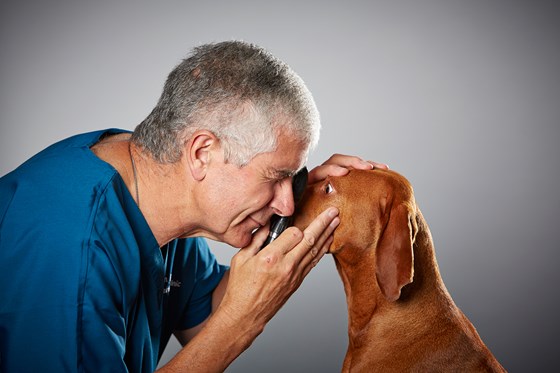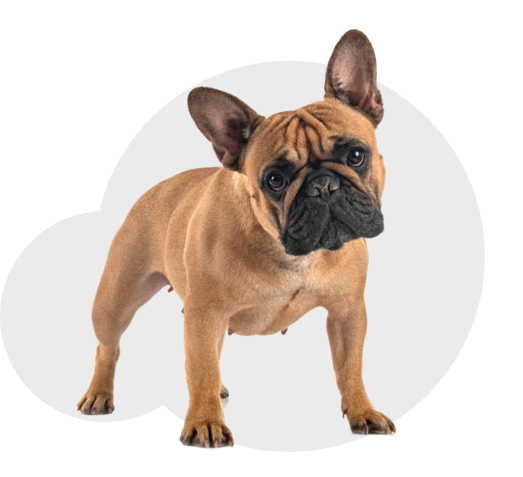
Hereditary Eye Disease
Eye testing scheme BVA/KC/ISDS
We have restarted Eye testing under the BVA/KC/ISDS Scheme at EVC (Leominster ONLY), however we only have limited availability each month – this is to enable us to catch up on the clinical work put back by the COVID lockdown. Please telephone us on 01568 616616 if you want to enquire/book an eye test. No appointments will be given over email (see below) and we do not hold a waiting list. We understand that this might be frustrating for you, but please be patient with us.
If you need an eye test urgently then click here for a list of other BVA eye panelists that may be able to help you.

Please note the following…
* We will ask you to pre-pay in advance of the booking (approx. 2 weeks before) as this will reduce telephone traffic on the day.
If you decide to cancel your eye test appointment we require 48 hours notice – any less than this we will not be able to offer a refund.
Over 48 hours we can offer a refund less the cost of the certificate (£10.08) as it will of been prepared for you in advance of your appointment.
* We will also require your kennel club registration document/s to be scanned and emailed to us at eyetests@eyevetclinic.co.uk so that we can minimise the transfer of paperwork at the time of the eye test and so we can fill in test forms before the appointment. If this has not arrived 24 hours before you are due to come for the test with your pet then we will cancel the appointment; refunds will not be given in this case.
*It may be necessary to cancel an appointment at short notice if the vet becomes ill or has been asked to self-isolate due to close contact with a COVID positive individual. We will do our best to rearrange your appointment as quickly as possible.
We do not hold a waiting list, all appointments are booked on ‘first come first served’ basis
The Eye Scheme
The Eye Scheme is run in partnership with BVA, the Kennel Club, and the International Sheep Dog Society.
The Eye Scheme was established in 1966 as a means of identifying inherited, and non-inherited eye conditions in dogs. It is a clinical eye examination carried out by Specialist Veterinary Ophthalmologists. The scheme is open to all breeds of dog including cross breeds and non Kennel Club registered dogs.
What is hereditary eye disease?
There are many types of eye disease, both congenital (conditions that exist from birth) and non-congenital (conditions that develop later in life) that affect dogs. Many of these conditions can have serious effects on health and welfare, causing pain and or blindness, and possibly the need for lifelong medication. All of these should be taken into consideration when breeding dogs.
Please click Here to view the list of Inherited Eye Disease and the breeds affected.
What happens at the routine examination?
For this test we ask you to arrive 30 minutes before your appointment. This is so we can administer dilating drops. These drops take between 20 – 30 minutes to work, and this enables the vet to see all the structures within the eye. While you are waiting one of our nurses will start completing your certificate, therefore you need to present the owners registration form as this is where we get all the information from, we will also stamp it on completion of the test (without this document we cannot issue your certificate).

The test itself only takes a few minutes, and the vet will issue you the certificate, and tell you if your dog is affected ☹ or unaffected. Contrary to belief most hereditary eye diseases are not present at birth but appear in adult life, and for this reason it is recommended that breeding dogs are checked annually.
Gonioscopy – ‘The Glaucoma Test’
Please click HERE to view the BVA information sheet on primary glaucoma and the Gonioscopy grading table
Breeds currently certified for goniodysgenesis under the Eye Scheme are as follows:
- Basset Hound (for POAG and goniodysgenesis)
- Border Collie
- Dandie Dinmont Terrier
- Hungarian Vizsla
- Japanese Shiba Inu
- Leonberger
- Petit Basset Griffon Vendeen (POAG)
- Retriever (Flat Coated)
- Retriever (Golden)
- Shar Pei
- Siberian Husky
- Spaniel (American Cocker)
- Spaniel (Cocker)
- Spaniel (English Springer)
- Spaniel (Welsh Springer)
- Spanish Water Dog
How do I go about having my dogs examined?
Performing gonioscopy requires certain expertise and specialised equipment and it is for these reasons that gonioscopic examinations are not a routine part of the eye scheme and are not available from every member of the BVA/KC/ISDS Eye Panel. A list of the BVA/KC/ISDS eye panellists is available from the British Veterinary Association or The Kennel Club. However, when telephoning a panellist to book an appointment, owners of the breeds listed above, who wish to have gonioscopy performed should check whether this is available.
How is gonioscopy performed?
Gonioscopy is generally performed without dilating the pupil. After application of local anaesthetic drops to the eye, a special lens (goniolens) is placed on the surface of the cornea to enable the drainage angle to be examined. The test is then repeated on the other eye. Some dogs require sedation for the procedure to be carried out effectively. The fee for sedation is in addition to the cost of the test. The panellist who performs gonioscopy on your dog should be able to answer any questions that you may have about the findings. There is a set procedure for appealing against the results of an eye examination should you wish to do so and the panellist will supply the requisite leaflet, which is also available on the BVA Website entitled Information for Owners Leaflet. Appeals must be lodged in writing with the BVA within 30 days of the examination.
For more information please see BVA website under canine health scheme : Click Here

Litter Screening
It is possible for litters to be tested for congenital hereditary conditions when they are 5 to 12 weeks old. The procedure is the same as for the routine examination. When organising and attending a litter screening, you will need to provide the following details:
- Owner details
- Parent details
- Number of puppies born
- Date of any previous examinations
- The microchip number of each puppy (all puppies being litter screened need to be microchipped before they are examined)
After the examination, you will receive a litter screening certificate with the results on. The results of litter screening of Kennel Club registered dogs will also be available on the Kennel Club database.
Some inherited eye diseases can be seen in puppies aged between 5 and 12 weeks old, view our Litter screening checklist to see which breeds should be screened at this age.
View our litter screening document here.